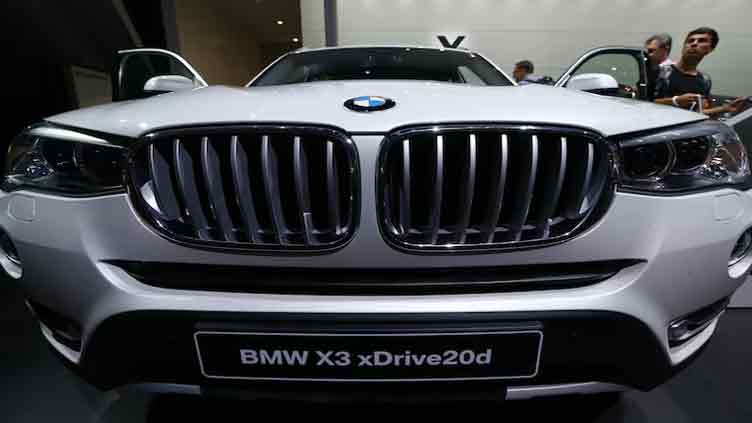China should hike import tariffs on large cars to 25pc, says research body

Business
Biden administration has unveiled steep new US tariffs on an array of Chinese imports
BRUSSELS (Reuters) – China should raise its import tariffs on large gasoline-powered cars to 25 per cent, a government-affiliated auto research body expert told China's Global Times newspaper as the country faces sharply higher US auto import duties and possibly additional duties to enter the European Union.
Liu Bin, chief expert of China Automotive Technology & Research Center (CATARC) and deputy director of China Automotive Strategy and Policy Research Center, said a tariff rate of 25pc was in line with WTO rules.
Shares of BMW and Mercedes were among the biggest weighted drags on the STOXX 600 early Wednesday, both falling by more than 2pc.
"The suggested tariff rate adjustment for imported gasoline sedans and sport utility vehicles (SUVs) with engines larger than 2.5 litres is not only in line with WTO rules," Liu of government-affiliated CATARC told the state-controlled newspaper.
Read more: Yellen pushes for joint G7 response to China industrial overcapacity
He said it would also help balance domestic and international markets and support a policy push towards green and low-carbon development.
A higher duty for cars with larger engines would hit principally German carmakers that export SUVs and sedans to China.
"We also noticed that certain countries and regions have taken restrictive measures in the new-energy vehicle sector, which run counter to the green development concept and violate market economy principles and WTO rules," Liu was quoted as saying.
The United States has unveiled steep new US tariffs on an array of Chinese imports, including electric vehicles. The European Commission is investigating China-made EVs, which is expected to lead to additional duties.
He said the recommended tariff hike would accelerate the green transition and was fundamentally different from protectionist measures elsewhere.


